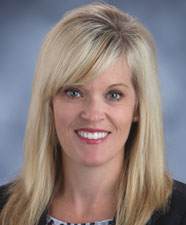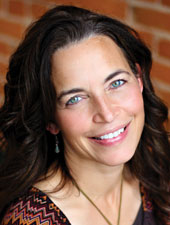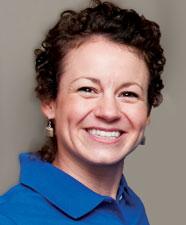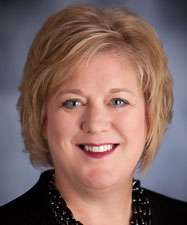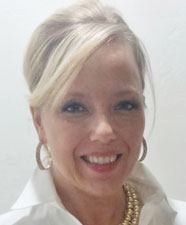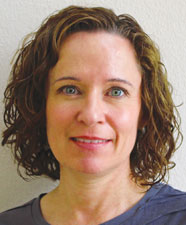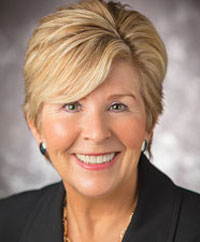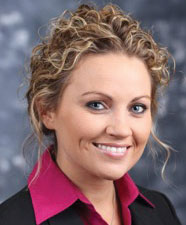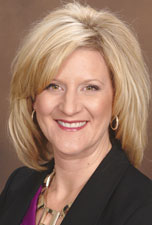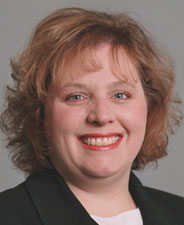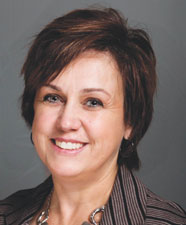As we age and navigate our own unique path through life, there are many things that will need to be taken into consideration along the way. This is especially true when it comes to getting ready for our retirement and senior years, with a myriad of things to be aware of, plan for, and have in place. From the normal stuff of day-to-day life such as preparing for the winter months now that the pretty autumn weather is upon us or the regular check-ups with your team of health care professionals, to the more complex affairs such as financial planning, retirement and estate planning, optimal living arrangements, and emergency protocol, it’s all in the details. With so many uncertainties about the future, whether it’s our health, the economy, or any other number of things that can impact our quality of life, it’s important to know about local resources that can offer assistance, allowing us to fully enjoy all of the years we are given.
Many seniors opt to take advantage of home care options to fill the gap with additional assistance when needed, whether in the home they’ve lived in for years or a retirement community that they’ve settled into. This can be anything from housekeeping and companionship to transportation and even medical care.
“Our Nurse Practitioners will visit a patient wherever their home may be – an independent living community, assisted living community, skilled nursing facility, or private residences,” emphasizes Jamie Peters, APRN, co-owner of Health at Home Consultants (www.healthathomeconsultants.com). “This is especially helpful for those who aren’t mobile or who don’t have family close enough to offer regular assistance. During the upcoming winter months in particular, it’s important for seniors to avoid situations where their safety could be in jeopardy. Home visits keep them indoors while still having access to care and other items that they need to stay healthy and happy. Especially in the case of seniors who have difficulty getting to their doctor’s office, we will collaborate with the primary physician to ensure that they are involved in our client’s care and they will receive updates on our visits. Furthermore, we always give the designated family member contact a call after each visit – keeping everyone updated is of the utmost importance to us.”
When evaluating what’s best for your loved one, there are a variety of things that should be taken into consideration. Stephanie Petersen, owner of All About Family, further explains, “I always use the acronym K.I.S.S. (Keep It Simple & Smart) when I’m explaining to family members the key things to do or be aware of with respect to senior loved ones.
K – Keep an eye on their home environment. Do you notice that things are not as tidy, food is going bad and they look unkempt? Are they more forgetful, but have enough wits about them to know they do not want to leave their current living environment? If so, you may want to consider in home caregivers. Give your loved one in-home care as an option, discussing that if they continue to decline, moving may be the next step. This will make them feel like they are in control of the move to a higher level of care (assisted living or nursing home), and not that the family wants what is ‘easiest’ for them. Although we all know it is not easy to move a loved one from their home.
I – Intake of fluids and food are important. Seniors may not drink as many fluids during the winter months and they become dehydrated easily.
S – Socialize! Generally speaking, seniors do not like to drive during inclement weather or when the roads may be difficult for them, so in turn they go out less to coffee in the morning or weekly card gatherings. Family members could offer rides, and try to stop by more frequently. If you do not live in the same state as your loved one, make it a point to call them. Again, All About Family caregivers are genuine and loving, and that companionship is priceless to those who are lonely.
Finally, the last S – Say ‘I am never too busy for you’ when they call you for a favor…and make it work somehow! All About Family, LLC is just over a year old, but we are growing and having the time of our lives learning and loving from our clients – our new ‘family.”
Along with the many flexible options for in-home care, day services may also be just the right fit for the specific needs of you or your loved one. Brittany Tran, Director of Tabitha Adult Day Services (www.tabitha.org), explains, “To know whether a person’s current living situation is meeting their needs, there are many things that can be evaluated as previously mentioned but one key question to ask yourself is: Would you feel more comfortable knowing that someone is checking in?
A few ways to gauge the situation and receive some counsel would be to talk with someone you know who has gone through the same transitions, visit in person or call Tabitha Continuum Navigation, or pick up Tabitha’s Evaluation Guide as a great tool that will help you think through your options.
Concerns during the winter months can include weather-related falls, decreased activity, decreased socialization, seasonal depression and poor nutrition. One to two days a week at Tabitha Adult Day Services can help with each of these concerns and assist with energy and sleeping patterns. With less time outside, more difficult road conditions and less fresh produce available, it’s important to remind each other that it takes a conscious effort to maintain health at any age. If unable to be out and about, I would recommend having planned meals together however often it works for your family. A couple of planned events, as well as the support of a program like Tabitha Meals on Wheels, can maintain socialization and boost spirits.
Remember, socialization is vital to any person’s well-being. Socialization and staying active can affect physical, mental and emotional health in countless ways. Tabitha Adult Day Services has a varied recreational calendar in an environment where individuals can choose to be however social they like. I’ve personally seen individuals’ strength and demeanor change in a matter of days after attending, having meals with peers and walking a little more than at home with longer hallways, and to and from the car. When attending Tabitha Adult Day or having help in the home, warning signs are caught before they become full-fledged problems, allowing Elders to have the most options available for remaining as independent as possible. Not to mention, Tabitha Adult Day Services can give caregivers peace of mind while they are away and soak in the benefits of staying social and active themselves.”
She adds, “When it comes to the things that I find people aren’t always aware of with respect to senior family members, two things come to mind. First and most recently, in my current position I see a lack of awareness of adult day services that are available. When there is a major change in an Elder’s health or situation, the common next steps are typically rehabilitation, assisted living, skilled nursing or hospice.
While these are all excellent options, day services can be just as valuable a resource for a variety of reasons. Many individuals may set up a few hours of home health but struggle many of the remaining hours of the day. Not many in the Lincoln community are aware that they can care for their family member at home while still working full-time or receiving much-needed respite to take time for themselves without breaking the pocket book. I would love to see more of the health care community recommending and utilizing adult day services when they see the need for socialization, supervision or respite from caregiver burnout, especially with memory care on the rise. Adult day services from Tabitha are a priceless option that caters to any schedule, even in combination with other services, for as little as $55 a day or $30 for three hours.
Second, since hospitalizations are almost always unexpected, I would advise families to talk and decide together where your loved one would choose to go for rehabilitation in the instance it is needed. If not preplanned, the decision is often rushed and stressful. It is important to know what your options are and a little about the organization you choose such as environment and quality of care.
Emotional support and respite time during a loved one’s aging journey can reduce stress and improve health for an Elder’s entire support system. Take the time to talk to your family to make healthy and proactive decisions. Everyone needs to help and be helped at different stages of life.”
When it comes to living arrangements in conjunction with care options, the following article from www.helpguide.org offers useful guidelines for making the decision that’s best for each individual:
It’s natural to want to stay at home as you grow older. However, taking a step back to look at the big picture can help you decide whether staying at home for the long term truly is the right step for you. Too often, decisions to leave home are suddenly made after a sudden loss or emergency, making adjustments all the more painful and difficult. Take a look at your options, your budget, and some of the alternatives. Your home situation is unique, and several factors will weigh in on the best choice for you. Here are some of the issues in evaluating your options:
Location and accessibility. Where is your home located? Are you in a rural or suburban area that requires a lot of driving? If you’re in an area with more public transit, is it safe and easily accessible? How much time does it take you to get to services such as shopping or medical appointments?
Home accessibility and maintenance. Is your home easily modified? Does it have a lot of steps or a steep hill to access? Do you have a large yard that needs to be maintained?
Support available. Do you have family and friends nearby? How involved are they? Are they able to provide you the support you need? Many older adults prefer to rely on family to provide help, but as your needs increase, they might not be able to fill in all of the gaps. It’s important to consider proximity to community services and activities as well.
Isolation. If it becomes difficult or impossible for you to leave home without help, isolation can rapidly set in. You may not be able to participate in hobbies you once loved, stay involved in community service that kept you motivated, or visit with friends and family. Losing these connections and support is a recipe for depression.
Medical conditions. No one can predict the future. However, if you or a loved one has a chronic medical condition that is expected to worsen over time, it’s especially important to think about how you will handle health and mobility problems. What are common complications of your condition, and how will you handle them?
Finances. Making a budget with anticipated expenses can help you weigh the pros and cons of your situation. Alternate arrangements like assisted living can be expensive, but extensive in-home help can rapidly become expensive as well, especially at higher levels of care and live-in or 24-hour coverage.
“The overall health care continuum continues to expand for everyone, including seniors,” advises Amy Fish, Administrator at Lancaster Rehabilitation Center (lancasterrc.com). “Services are now available for both long and short term needs. It’s important for seniors to take advantage of assistance they may need with simple chore services, or intermittent respite care for a spouse or loved one. Seniors deserve to take full advantage of the benefits or programs for which they may qualify. The team at Lancaster Rehabilitation Center can serve as a resource for any long-term, memory support, or short stay rehabilitation needs. We also have a certified SHIIP counselor on staff for help with any Medicare questions. Community members are welcome to contact us anytime with questions. We’re here to help!”
When trying to balance the want for independence with the need for extra assistance, it’s most important to keep as the primary focus the provision of the most appropriate care for that particular moment in time. Evaluate what additional services will help maintain their utmost freedom and independence while providing them the safety and security needed. Easy things like arranging for meals on wheels, or chore services might be the answer. Don’t feel like you need to make a major jump to 24-hour care, if that’s not what is vital or necessary as a first step. It will often be better received if services are gradually introduced, especially to those seniors who are very independent.
When a decision is made on the services needed, and the elder is in agreement with this help, make sure your expectations are clearly communicated to the provider selected to deliver this service. Often, a breakdown in communication leads to frustration on everyone’s part. Hold the provider accountable to your expectations, and solicit feedback often from the elder receiving the services to ensure their comfort with the change.
It is equally important to start the conversation and planning before it is needed. Adult children should take the time to engage in conversation regarding the future care needs of their parents or elderly loved ones. Often, when something unexpected happens, we’ll find that those now making decisions on behalf of elders are unaware of things like insurance policies, care directives, or how to manage their affairs in the interim of their recovery. Research in advance the many options for care. Know and understand what is important regarding their preferences for social, spiritual, and clinical care. Also, rely on the expertise of others to help guide the decision making process. Don’t be afraid to ask plenty of questions in order to ensure you have all the facts. Focus on the most critical decisions first, knowing that there is plenty of help available.”
Regarding concerns for seniors with winter on the horizon, she further advises, “Getting out and about in the winter months can be treacherous for anyone, let alone for those who have physical limitations or safety concerns. Therefore, before deciding to make that trip to the store, or medical appointment, senior’s need to be sure the route will be free of obstacles like snow banks or icy sidewalks. Volunteering to clean the drive or sidewalk for a senior is a kind gesture and may allow them to make even simple trips to the mailbox worry free. Another kind gesture would be offering to assist with their travel needs, or just stopping by to pass the time. The cold and dangers of winter can isolate seniors, making simple tasks more difficult. It is important to lean on the many resources our community offers to seniors every day, including things like meals on wheels, and home health care services. At Lancaster Rehabilitation we also offer short term respite stays, where seniors can reserve temporary residence until spring arrives. That way, they receive all the comforts of home, plus an actively engaged social program, and delicious home cooked meals!
Furthermore, socialization is always important for anyone, but particularly seniors who might have a tendency to become more isolated as debility or access to resources becomes more prevalent. Get involved in helping elders do the things they’ve always enjoyed. Simple patio gardens or trips to a local green-house are an enjoyable way to spend the day. Fresh air and sunshine are enjoyable to most anyone. Plan a picnic lunch where elders can enjoy spending time with family and grandchildren. Or attend a local sporting event, where handicap accessibility is provided. Look for opportunities to give back to the community by volunteering for a worthy cause, and look for opportunities to learn a new skill.”
“Socialization and staying active are important ways to fend off depression – especially during those blah winter months,” agrees Christy Merritt, Executive Director of The Waterford at Williamsburg (www.thewaterford.net). “Sometimes just gathering together with friends to watch movies, play games or for a book club will do the trick. One pointer is to make sure you mix it up and gather together in different locations. In fact, the simple change of scenery alone can boost someone’s spirits.
As the winter months will pose risks for seniors due to extreme cold and ice, the most obvious concern is generally finding the best way to prevent falls. One of the most important tactics in preventing winter accidents is to remember not to rush. You should allow plenty of time to get from place to place, use clean pathways, and provide an extra hand when in doubt.
Related to staying active and fear of falling, I’ve encountered many people who are actually afraid that their mom, dad, grandparent or elderly loved one will fall or injure themselves during exercise so they discourage it. However, exercise is in fact one of the only proven ways to combat the aging process. There are all types of low impact exercises that can be of great benefit to seniors who are highly mobile, those with limited mobility, and those in between. I always say start with your physician because they will be the most in tune to your limitations and abilities.”
“Winter weather is inevitable in Nebraska and while it’s not cold yet, it’s important to develop a plan before the cold weather arrives,” adds Amy Hemje, LCSW, HoriSun Hospice Social Worker (www.horisunhospice.com).
“The National Weather Service has definitions of different winter weather: A Winter Storm Watch is issued when there is the potential for significant and hazardous winter weather within 48 hours. It does not mean that significant and hazardous winter weather will occur…it only means it is possible. A Winter Storm Warning is issued when a significant combination of hazardous winter weather is occurring or imminent. A Blizzard Warning means that the following conditions are occurring or expected within the next 12 to 18 hours: 1) Snow and/or blowing snow reducing visibility to 1/4 mile or less for 3 hours or longer AND 2) Sustained winds of 35 mph or greater or frequent gusts to 35 mph or greater.”
She also offers several tips to help you stay safe during severe winter weather conditions:
1. Have your furnace inspected and serviced by a heating-plumbing professional and change furnace filters regularly. Make sure smoke detectors and carbon monoxide detectors are working properly.
2. Check to see that snow removal equipment is working properly or make arrangements for snow removal assistance. Aging Partners can assist in finding snow removal providers – their phone number is (402) 441-7070.
3. Make sure you have adequate cold weather clothing such as a winter coat, long pants and long sleeved shirt, sturdy shoes, hat, gloves/mittens and a scarf.
4. Make a plan now of what you will do during a severe winter weather event. Talk with family and friends and arrange for someone to check in on you. If you have in-home help, ask them about their emergency plans. If you live in a senior community, be sure to know their emergency plans. If you have medical equipment such as oxygen check with your medical supplier about power outage backup options.
5. Keep emergency numbers and family members’ numbers by your telephone or entered into your cell phone. Keep a list of current medications and dosages in an easily accessible place.
6. Build an emergency kit for at least 3 days: items can include food, water, medications, medical and personal hygiene supplies, flashlight with extra supply of batteries, warm blankets, first aid kit, pet food and water.
7. Keep regularly updated on weather conditions. Local TV stations, NOAA weather radio, internet, cell phone apps and updates from family and friends are options for being informed of current weather information.
Throughout the years, Care Consultants for the Aging’s Home Care Registry and ElderCare Resource Handbook have helped thousands of people in Nebraska and Iowa with their eldercare needs. In fact, the newest editions have just been released with the most up-to-date resources in the area listed!
The Home Care Registry (www.careconsultants.com/home-care/) will help you find interviewed, screened, and qualified caregivers to fit your home care needs. This includes companions, Home Health Aides, Certified Nursing Aides and Nurses offering general and specialized client-directed care services.
The ElderCare Resource Handbook (www.careconsultants.com/eldercare-resource-handbook/) provides a complete listing of companies that provide services to seniors in the Lincoln and Omaha metro areas.
Everyone is different and people need various options while navigating their healthcare journey. Different factors determine when and what kind of help is needed. Furthermore, Care Consultants understands that it is hard to ask for help. Their services are set up in a way that will get you the care you need. Their Home Care Registry has provided relief for so many, allowing care to be client-directed, while their ElderCare Resource Handbook has provided options for those trying to navigate the aging process. By understanding the services, resources and options which are available locally, it is the hope of Care Consultants that seniors and their families will be able to make informed decisions which have the potential to enhance their quality of life and independence.
When a move to a retirement or assisted living community becomes an option that is being seriously considered, there are plenty of resources available to help with this undertaking as well.
“Deciding on a retirement community can be a difficult decision and there is a great deal of confusion about senior housing choices and the differences in the levels of care,” says Roxann Rogers-Meyer of The Landing at Williamsburg Village, an Immanuel Community (www.immanuelcommunities.com) . “When choosing a community one of the most important considerations is matching the type of services and care necessary for the individual.
We encourage seniors and their families to plan ahead. The Landing at Williamsburg Village team will educate seniors as they explore their housing options. The earlier you begin planning for your future, the more options, the more choices and control you have over your future.
A growing trend across the country is the continuum of care model. This model allows the senior to age in place as their health changes. The Landing features independent living, assisted living, memory support and long-term care all on one campus. Our residents appreciate the fact that they can stay on our campus as they move through the continuum.
Many seniors who make the move to a retirement community are pleasantly surprised at how much they enjoy the senior living lifestyle. They often comment that they wish they had made the move sooner.
The Landing features the AgeWell Center, a wellness center with a warm water pool, aerobics room, exercise center and a computer lab. There are opportunities for lifelong learning and social events to promote fellowship and forge new friendships. A highlight each year is the melodrama production which includes performances by residents and staff.
The Landing team encourages families to start the conversation and to take into consideration the wishes of their loved ones and what their view of their lifestyle may look like as they move to a retirement community.”
Even with assisted living facilities there are specialized services offered depending on the health and specific needs of the individual. A prime example of this is as dementia and Alzheimer’s disease become much more prevalent, there has been an increased demand for specialized memory care services and resources.
“We do know that memory loss and cognitive impairment are on a significant rise,” says Kayla Schaf of Legacy Retirement Communities (www.legacyretirement.com). “According to the Alzheimer’s Association one in three seniors pass away due to (or dies from complications of) Alzheimer’s disease. Early detection of memory loss is extremely valuable to both the person suffering and the care provider. By delaying the identification of memory loss, people are being diagnosed too late and missing a possible window of opportunity to get the most help. By learning about the signs and symptoms of Alzheimer’s one can possibly gain and maintain a higher of level of independence longer if diagnosed. The Lincoln community has many great resources and experts that can be a helpful to families in need. Kathy Nannen, Director of The Arbors, Legacy’s memory care community, offers one-on-one counseling and group support meetings. She can be reached at (402) 466-3777 if you have any questions or are in need of assistance.”
As the upcoming holiday season is a time when we gather with family, it also allows us an opportunity to see our senior relatives and evaluate if their health or living situation has declined. Schaf adds, “If families live out of town, the holidays or a planned visit can reveal concerns that a phone conversation cannot. Aging parents may show signs of aging in ways beyond the typical appearance. Here are some things to look for when visiting an aging loved one:
Check the home environment, inside and out. Is the home well maintained? Is the yard kept up? Are repairs being made in a timely manner? Is the home clean and orderly? Look in the fridge and pantry. Is it well stocked? Are foods spoiled or expired? Is the mail collected? Do you find any late notices from utility companies? Are bills getting paid on time?
Spend time with your loved ones. Does your parent repeat him or herself? Do they seem clear or has there been a change in memory? Are they more confused? How is their balance? Have they experienced any falls lately? Do they appear healthy? Are they well-groomed as they’ve always been? Are they eating well? How is his or her mood? Do you see any signs of depression? Is your parent still active and social? Is he or she isolated? Or are they engaging with friends or groups that they have enjoyed in the past?
Assess their mobility and transportation needs. Have you ridden in the car with them lately? Simply observe his/her comfort level behind the wheel, how she/he responds to traffic situations and if he/she shows there are any signs of confusion. Is there an opportunity to tag along to a medical appointment? If so take advantage. It could be a good opportunity to advocate and give support to your loved one as well as gain more insight to what is going on medically.
All of the above can be signs of early disease processes, depression or other conditions that need attention or action. Are your loved one’s needs being met? Families must not fear insulting their parents by asking them about what they see. It’s a loving act to bring it up in a respectful way. At Legacy Retirement Communities we can help families identify how to keep their loved one safe and well cared for.
We find that isolation is a real problem for seniors particularly due to loss of a spouse, loss of friends, family or physical limitations including mobility. The impact of loneliness and social isolation on an individual’s health and wellbeing can be very serious. Socialization and companionship is one of the major benefits a Retirement Community can offer by helping alleviate loneliness and improve the quality of life of seniors. Moving into a retirement community can offer much more than, meals, housekeeping, transportation and many of the other promoted amenities. As many of our residents greatly benefit from the above services, most of all –they truly benefit from the support of being with people. People who care about them and make them really feel part of something, part of a family.”
Specifically regarding health concerns related to hearing, studies indicate that it takes approximately 5 years for someone to admit they have a hearing loss. During that time, it’s very likely that person has slowly withdrawn from social activities, “because it is easier to stay home than to deal with distorted conversations,” says Leslie Frank MS, CCC-A, owner and Audiologist at Nebraska Hearing Center (www.nebraskahearingcenter.com).
Recent studies from Johns Hopkins show that hearing loss may play a role in dementia or Alzheimer’s. Certain areas of the brain are used to process sound and speech. According to the study, when those areas of the brain are not being used, it may lead to dementia.
“At Nebraska Hearing Center, we encourage all adults to have their hearing tested annually,” Leslie emphasizes. “Once a baseline is set, you can then monitor any changes.” There is no reason not to do it since hearing evaluations at Nebraska Hearing Center are free.
Furthermore, hearing loss is often a gradual process and can make communication with others very difficult. “People with hearing loss slowly begin to isolate themselves because it is easier,” states Leslie. “In winter seniors are isolated anyway, so it is important for loved ones to look for signs of hearing loss”.
Common signs to look for regarding hearing loss are: Your loved one can hear loud enough, but can’t understand conversations • They overuse the word “what.” • The TV is too loud for others. • They have trouble understanding a conversation in a noisy environment. • They have ringing in their ears.
Seniors look forward to gatherings with friends and family. Why not be an active participant and enjoy those gatherings? If aids can make life more enjoyable, it is worth the investment.
Technology is also really changing the world of hearing. Nebraska Hearing Center offers wireless technology combined with a small remote. It is designed to improve hearing when using cell phones, or when watching TV, or listening to music. The technology greatly improves the clarity when in meetings, noisy places, or while at church. “Our clients who have recently purchased these new aids, really love them,” says Frank. Nebraska Hearing Center also has a new tinnitus device. “Clients who have had ringing in their ears for years, tell us they no longer hear it.”
“It’s crucial to make sure that communication between everyone is a priority,” adds John Wyvill, Executive Director of the Nebraska Commission for the Deaf and Hard of Hearing (www.ncdhh.ne.gov). “This involves working together as a family or group to identify areas of concern. For example, it could be communication tips for family activities such as family reunions or holidays. There are assistive listening devices that can provide communication access, and the Commission can help you with that to identify what will best meet these communication needs and assist through this process.
Many seniors are unaware of all of the resources the Commission has to offer, such as our hearing aid bank, which can assist with the purchasing of hearing aids, our assistive technology equipment loan program, or our ‘NSTEP’ program, where we work with individuals to provide any assistive technology specific to their needs (like amplified telephones, alarm clocks, etc.) free of charge. We are available to work with families and individuals to find their communication access solutions.
Especially in the winter months, the feeling of isolation can often be magnified. Snowy days and bad weather make getting out difficult, so many people depend on using the telephone. When you cannot hear or understand the conversations on the phone, it can be frustrating and challenging. To prepare for winter, have activities and plans made; senior centers often have transportation available for these as well.
In planning for the upcoming winter months, communication with family, friends, or caregivers is key. Contact NCDHH and speak with a team member about any resources, information, or assistive technology that can better serve you or a family member’s communication needs.”
Evaluating health conditions/needs, current and prospective living arrangements, discussing wishes or arrangements, and planning for the future with our elder loved ones is something that we all will likely be faced with at some point. Christine Vanderford, of Vanderford Law, PC LLO (www.vanderfordlaw.com) notes that these topics are not always the easiest to discuss, but necessary for a host of different reasons. She advises, “Once you have covered what the senior’s wishes are, it is wise to have a team of professionals in their field to assist you with the necessary steps moving forward. We offer free one hour consultations, free annual reviews for all clients of their documents, and free meetings with extended family at our clients discretion to help family better understand all of the options available. We also occasionally provide free education seminars or discussion groups to allow our clients to further understand what things should be on their ‘list’ before they pass and what we can do to assist our clients and their families in preparing for the future.”
The more vital documents and information you have gathered in one place, the easier things will be for those who will need them. Here is a list of important items that are beneficial to keep securely in one place with access to all critical parties:
• The Legal Essentials: Your Will, Letter of Instruction, Trust Documents, and Financial Power of Attorney.
• Regarding Marriage, Divorce, and Military Service: Marriage License, Divorce Papers, and Military Documents.
• Regarding Health Care: Personal and Family Medical History, Durable Health Care Power of Attorney, Authorization to Release Health Care Information, Living Will, and Do-Not-Resuscitate Order.
• Proof of Ownership: Housing, Land and Cemetery Deeds, Escrow Mortgage Accounts, Proof of Loans Made and Debts Owed, Vehicle Titles, Stock Certificates, Savings Bonds and Brokerage Accounts, Partnership and Corporate Operating Agreements, and Tax Returns.
• Life Insurance and Retirement: Life Insurance Policies, Individual Retirement Accounts, 401K Accounts, Pension Documents, and Annuity Contracts.
• Bank Accounts and Social Media: This should include a list of all bank accounts, user names and passwords, and information regarding safe deposit boxes. This is a major concern with the increase in the amount of online accounts we have in all areas of our lives!
“I probably sound like a scratched record when you read interviews from me, but I cannot stress enough the importance of planning for your final wishes,” further emphasizes Jodi Freeman of Roper & Sons Funeral Care (www.roperandsons.com). “I will be the first to admit, it is a difficult discussion to have – with ourselves, and with our loved ones. My own parents and children roll their eyes when I bring up theirs and my final wishes, but I don’t (and won’t) let it go until we know we are all on the same page. I hear time and again how much of a gift having your final plan is to your loved ones – making it known, in writing that is kept in a safe place, what you wish your final goodbye to look like. Things we include in your plan range from type of service you wish to have, and including everything from whether you wish to have a traditional burial service, be cremated, have a special casket or urn, even down to what music, scriptures, or poetry you like (or really dislike!). You can also pre-pay for your services. Did you know average funeral prices double every ten years, but when you create a plan with us and make payment arrangements, you lock the majority of those costs in? There are a lot of outdated ideas and misconceptions about funeral pre-planning out there; we are here to help dispel those myths and mysteries, and answer your questions in a way that is clear and easy to understand.
We host pre-need planning seminars regularly – some at the funeral home, and some at various locations throughout the community. You are welcome to attend any of our seminars, completely free of charge (not to mention, you get a free meal), or one of our Family Service Counselors would be more than happy to sit down with you on an individual basis to answer your questions. Information about the date, time, and location of these seminars is updated regularly on our website, under the Upcoming Events section, www.roperandsons.com. You can also contact us at (402) 476-1225 or info@roperandsons.com to learn more about the seminars, have any questions answered, or to schedule an appointment with a Family Service Counselor.”
As with any move, it’s important to prepare as much as possible for a smooth transition. For seniors especially, there is also generally some downsizing that needs to happen with a move from their home to an apartment in a retirement or assisted living community.
Keep in mind that it’s never too early to start downsizing; passing items on to family members, or having a garage sale or consigning items at a local thrift shop and putting that money towards living arrangements, are all great ways to plan ahead. Most seniors have lived in their houses for 30+ years and don’t realize how small the new space is that they are going to be moving into. After a particular residence is chosen, it can be helpful to ask the facility for an overhead drawing of the new space. Use a pencil and start drawing in what furniture you will take and where it will go in the apartment – it will give you a good idea of your plan of action moving forward. This way you’ll avoid bringing too much furniture with you and will also make for less decisions needing to be made on move day, which will help cut down on stress.
When utilizing a local moving company such as Two Men and A Truck (twomenandatruck.com), it may be helpful for seniors to request a team of movers to help reduce move time. It’s entirely possible in some cases to plan for one day to get everything packed, make the move to senior living, and get everything unpacked and organized all at once. When doing a full-service, one day move it can really cut back on the severity of the impact that the move may have on your loved one.
With many pressing issues facing our society today when it comes to our senior population, there are just as many issues facing our seniors themselves. You know the problems, right? No will, no estate plan, no medical advocate, no funeral arrangements, no life insurance, no one knows your wishes if you are in a coma or on breathing machines, well, you get the picture. Now magnify your individual death to a national scale. There were 76.4 million births between 1946 and 1964 – the Baby Boomers. The Baby Boomers comprise a full 40% of our population and the youngest of them are 50. The oldest are just reaching their 70’s. Run the numbers through your head, forward think it. What will life look like for 40% of our population in the next decade or two? If we are unprepared for all of the above scenarios that seniors will be approaching, we will be facing a national crisis.
Luckily, there are many local resources that are on the front lines of the aging process. These professionals are found in private homes, day services, rehabilitation care and hospitals, independent living, assisted living, skilled nursing, and memory care facilities along with many other local businesses and organizations who have unique offerings in place to assist seniors and their loved ones. This great generation should age with dignity and respect, and many are starting the conversation to identify problems and provide solutions for our aging citizens and our community.
Many seniors and their families will be approaching decisions that greatly impact their lives, and these decisions should be made with great care and awareness of the many wonderful resources that are out there and ready to help wherever it’s needed. While every person and scenario is different, the important thing to know is that you don’t have to navigate your own personal journey alone. Make sure to utilize the experts and you’ll be prepared for just about anything that comes your way!


